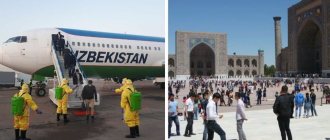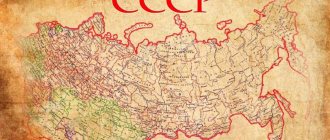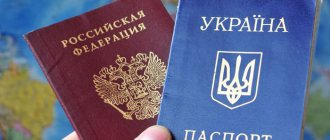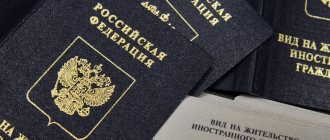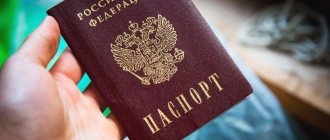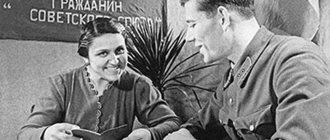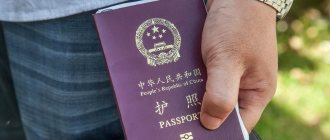In July 2021, it will be easier to obtain Russian citizenship
On April 24, Vladimir Putin signed Federal Law No. 134-FZ “On Amendments to the Federal Law “On Citizenship of the Russian Federation” in terms of simplifying the procedure for granting citizenship of the Russian Federation to foreign citizens and stateless persons.” The law comes into force after 90 days from the date of publication. The changes apply to immigrants from Belarus, Ukraine, Kazakhstan, Moldova, migrants married to Russians, graduates of Russian universities, as well as everyone who is registered under a simplified procedure. The changes come into effect on July 24, 2021.
Interesting facts to think about: in 2016-2018, the number of people who received Russian citizenship was approximately 250 thousand per year; 2019 already 487 thousand people. The entry into force of the current amendments makes us think about the future population of Russia and the state of the labor market.
Let's see what the new law has in store.
The main innovations are as follows.
1. Foreign citizens, regardless of the basis on which they apply for citizenship and what country they come from, will not need to renounce their citizenship. Previously, in order to apply for Russian citizenship, it was necessary to renounce existing citizenship.
2. Applicants for Russian citizenship from Belarus, Kazakhstan, Moldova and Ukraine, as well as persons specified in the Law who receive citizenship under a simplified procedure (see points 3, 4, 5, 6, 7 below) will not need to confirm income. That is, neither 2-NDFL, nor certificates of deposit, nor other documents on income will be required from candidates. Also, they will not need to live in the Russian Federation for five years with a residence permit.
3. Stateless persons, adults and capable, who are former citizens of the USSR, lived and live in states that were part of the USSR, and did not receive citizenship of these states, will be able to obtain Russian citizenship in a simplified manner without the need for a five-year residence permit and without confirmation income.
4. Migrants who are married to a citizen of the Russian Federation living on the territory of the Russian Federation and have children together do not have to wait three years after marriage and obtain citizenship immediately. To do this, they need to reside permanently or temporarily on the territory of the Russian Federation.
5. If a foreign citizen received professional education in Russia and after graduating from a university (technical school, college) officially worked in the Russian Federation for at least one year, then he can obtain Russian citizenship in a simplified manner.
6. Persons who have at least one parent who has Russian citizenship and resides on the territory of the Russian Federation can now obtain citizenship in a simplified manner.
7. In a simplified procedure, foreign citizens or stateless persons recognized in the manner prescribed by law as native speakers of the Russian language are also granted citizenship if these persons or their relatives in a direct ascending line permanently reside or previously permanently resided in the territory of the Russian Federation or in the territory belonging to the Russian Empire or the USSR, within the State border of the Russian Federation.
In general, along with the simplification of the naturalization of Russian people who remained “abroad” after the collapse of the USSR, there is also a simplification of obtaining citizenship “by marriage” and “by education,” which cannot but lead to abuses.
Author: Alexander Ulogov, lawyer.
If you find an error, please select a piece of text and press Ctrl+Enter.
New law on obtaining Russian citizenship 2021
The new law on obtaining Russian citizenship today suggests that certain changes have occurred in Russian migration policy, which all potential citizens of our country should definitely pay attention to. Let's consider these nuances in more detail.
In 2021, as always, we will be happy to help foreign citizens understand the intricacies of Russian migration legislation and successfully obtain Russian citizenship, both in general and in a simplified manner, in the shortest possible time with minimal costs. You can take advantage of our promotion and become a citizen of the Russian Federation in 2021 with our legal assistance.
Therefore, with the development of migration relations and their requirements, the need to introduce amendments arose. These changes regulate the process of obtaining citizenship, as well as the necessary conditions, simplified options for obtaining, and situations concerning the children of repatriates.
» In the event that foreign citizens and stateless persons who are participants in the State program to assist the voluntary resettlement of compatriots living abroad to the Russian Federation, and members of their families who have received a temporary residence permit in the Russian Federation or a residence permit, have registration at the place of residence on the territory of a subject of the Russian Federation, chosen by them for permanent residence in accordance with the specified State program, or are registered at the place of stay on the territory of the specified subject of the Russian Federation, they have the right to apply for admission to citizenship of the Russian Federation in a simplified manner without compliance the conditions provided for in paragraphs “a”, “c” and “d” of part one of Article 13 of this Federal Law.”
This can be carried out in the building of a branch of the Ministry of Internal Affairs, institutions dealing with diplomatic issues, and in various state consulates. Also, this procedure can be carried out in a historical place, in close proximity to memorials.
Obtaining Russian citizenship in a simplified manner in 2021
- Migration registration and registration at the place of residence;
- Obtaining a temporary residence permit;
- Registration of a residence permit;
- Collecting documents and submitting them to the Migration Service of the Ministry of Internal Affairs without a 5-year wait;
- Taking the oath;
- Obtaining a civil internal passport of a Russian resident and registration of permanent registration at the place of residence.
- It is necessary to present not only notarized copies of all documents, but also originals;
- foreign documents must receive legal status on the territory of the Russian Federation. To do this, an apostille is affixed to them (for countries participating in the Hague Convention) or a legalization procedure is carried out in relation to these documents - for all other states;
- official papers filled out in any language other than Russian are subject to translation and subsequent notarization;
- any changes that occurred after the applicant was issued a birth certificate or passport of the state of which he was or is a citizen are subject to documentary confirmation. That is, if during the course of his life the future Russian changed his first, last, or patronymic name, he must attach documents to the package that reflect this fact.
For foreigners who are married to a Russian man/woman and have a common child, persons deported from Crimea during the existence of the USSR and their relatives, foreign military personnel who serve in the territory of the Russian Federation under a contract, WWII veterans living in Russia, disabled migrants from the former Union republics that were registered in the Russian Federation on July 1, 2002, obtain citizenship status, bypassing the stage of obtaining a residence permit.
- a correctly completed application in two copies;
- passport and birth certificate with notarized translation;
- residence permit (except for categories that have the right to obtain citizenship on the basis of a temporary residence permit or even without it);
- tear-off receipts of the notification form confirming residence for the entire period of the applicant’s stay in Russia;
- entry visa - for migrants from states with which the Russian Federation has a visa regime;
- confirmation of registration and migration registration;
- documents confirming fluency in the Russian language (except for migrants from Belarus receiving citizenship on the basis of citizenship of this country, minor children, men over 65 and women over 60, incapacitated persons). This can be a certificate - if Russian was studied at school, a diploma in which this discipline is present, or a certificate received after successfully passing testing in one of the accredited educational institutions of the Russian Federation;
- a diploma or other proof of education, a copy of a work record book or a contract with an employer, a pension certificate for disabled persons, marriage and birth certificates, a certificate of refugee status, a certificate of a disabled person from the Second World War and other documents confirming the existence of grounds for obtaining Russian citizenship under a simplified scheme ;
- matte photographs size 3x4 in the amount of 3 pieces;
- receipt for payment of state duty.
- minor children of parents who are Russian citizens;
- former citizens of the Soviet Union who are currently stateless persons and live in one of the countries that were formerly part of the USSR;
- persons living in the territory of the DPR/LPR.
- Application for citizenship in two copies.
- A document that confirms legal residence in the Russian Federation: migration card, visa, temporary residence permit, residence permit.
- A document that confirms a legal source of livelihood: a certificate from work, a work book.
- The commission's decision on recognition as a native speaker of the Russian language.
- If a foreigner lived in the Russian Federation or the former USSR, you will need a supporting document: an extract from the house register, a military ID, archival certificates, etc.
- If relatives live or lived in the Russian Federation or the former USSR, you will need a supporting document: birth or marriage certificate, residence permit, extract from the house register, etc.
Pensioners receive Russian citizenship in a general manner, but have the right to Russian citizenship in a simplified manner if they meet one of the conditions for obtaining citizenship in this way. For example, if you were born in the RSFSR and were citizens of the USSR. Or if their adult child is a Russian citizen.
- was a citizen of the Byelorussian SSR, Kazakh SSR, Kirghiz SSR or RSFSR and at the same time of the former USSR;
- was born or lived in the RSFSR before December 21, 1991;
- in the Russian Federation he has close relatives with Russian citizenship: a spouse, one of the parents, a child, a sister or brother, a grandfather or grandmother, a grandson or granddaughter.
- A person who was born and permanently resided in Crimea or Sevastopol, but left there before March 18, 2014.
- A citizen of Ukraine and a stateless person who permanently resided in the territories of the Donetsk and Lugansk regions of Ukraine as of April 7, 2014 and April 27, 2014. He must have: a temporary residence permit or residence permit in the Russian Federation, a refugee certificate, a certificate of temporary asylum in the Russian Federation or a certificate of a participant in the State program to assist the voluntary resettlement of compatriots in the Russian Federation,
- The one who was subjected to illegal deportation from the territory of the Crimean Autonomous Soviet Socialist Republic.
- The one whose relatives were subjected to illegal deportation from the territory of the Crimean Autonomous Soviet Socialist Republic.
- Citizen of the Republic of Afghanistan, the Republic of Iraq, the Yemen Republic and the Syrian Arab Republic, born on the territory of the RSFSR and formerly a citizen of the USSR.
- Child, spouse or parent of the above-mentioned foreigners.
- Resident of certain areas of the Donetsk or Lugansk region of Ukraine.
- A citizen of Belarus, Kazakhstan or the Kyrgyz Republic who meets one of two additional conditions. The first option is that the person was a citizen of the Byelorussian SSR, Kazakh SSR, Kyrgyz SSR or RSFSR and at the same time a citizen of the USSR and was born or lived on the territory of the Russian Federation before December 21, 1991. The second option is that a close relative of the applicant has Russian citizenship and permanently resides in Russia. Close relatives here include: spouses, parents, children, sisters, brothers, grandparents and grandchildren.
- Continuously reside in Russia for 5 years on the basis of a residence permit.
- They promise to comply with the Constitution of the Russian Federation and agree to accept Russian citizenship.
- Officially employed or have another legal source of income, such as a bank account or inheritance.
- They speak Russian and have a special document confirming this: a certificate of proficiency in Russian, a school certificate, a diploma from a university in Russia or the USSR.
The President simplified obtaining Russian citizenship for Ukrainians and others
In this context, compatriots are understood as participants in the compatriot resettlement program. From March 29, 2021, participants in the state program can apply for citizenship not only at the place of registration at the place of residence, but also at the place of stay, that is, according to migration registration. What does it mean? Previously, it was possible to apply for citizenship only if you had a certificate of participation in the state program, a temporary residence permit and registration under the temporary residence permit. Now it is not necessary to register under a temporary residence permit, and you can apply for citizenship with registration in hand (migration registration). And, it should be noted that for a number of compatriots this procedure will really make it easier to obtain citizenship, as it will reduce one stage of paperwork, which is undoubtedly good news. If you do not yet know what the resettlement program for compatriots is, you can find detailed and up-to-date information on obtaining Russian citizenship under the resettlement program at the link
Conclusion . In fact, two significant amendments are being made to the law, which were expected. What didn't happen? It was assumed that for participants in the resettlement program the need to provide a notarized renunciation of existing citizenship would be abolished and, of course, the majority of Ukrainian citizens expected that simplifications would apply to obtaining Russian citizenship in principle, and not only to participants in the resettlement program. But given the number of Ukrainian citizens who annually take part in the compatriot resettlement program, these changes in legislation will indeed simplify obtaining citizenship under the compatriot resettlement program, and we should not forget that clarification on the second point of changes is expected in the near future.
Putin signed a new Decree on simplifying the process of obtaining Russian citizenship for foreigners and stateless persons
e) citizens of the Islamic Republic of Afghanistan, the Republic of Iraq, the Yemen Republic and the Syrian Arab Republic, born on the territory of the RSFSR and who were former citizens of the USSR, as well as their children, including adopted children, spouses and parents.
We recommend reading: What documents are needed for a child benefit of 200 rubles
a document confirming permanent residence in the territories of certain regions of the Donetsk or Luhansk region of Ukraine as of April 7, 2021 and April 27, 2021, respectively, including those issued by the relevant authorities actually operating in the territories of certain districts of the named regions, with a registration mark at the place of residence in these territories. Submission of such a document is not required if this information is contained in an identity document;
New migration law - changes from 2021
The essence of this decision boils down to the fact that citizens of the Republic of Moldova who are on Russian territory in violation of the terms of stay, in the period from 01/24/2021 to 02/24/2021 will be able to leave for their country without consequences, i.e. without bringing them to administrative responsibility for violation of the terms of stay on the territory of the Russian Federation and without making a decision regarding a ban on entry into Russia in relation to such persons.
- Grant the President of the Russian Federation the authority to determine, for humanitarian purposes, categories of foreign citizens who have the right to acquire Russian citizenship in a simplified manner (draft bill No. 527255-7). At the same time, humanitarian purposes mean the granting of citizenship to persons from countries with a complex socio-political and economic situation, where armed conflicts and/or changes in political regime occur.
- Simplify admission to Russian citizenship for participants in the state program to assist the voluntary resettlement of compatriots living abroad to Russia (same bill).
- Exempt citizens of Ukraine from completing a written renunciation of their existing Ukrainian citizenship in order to obtain Russian citizenship (draft bill No. 507208-7).
We recommend reading: How to order a certificate of pension payments through government services
